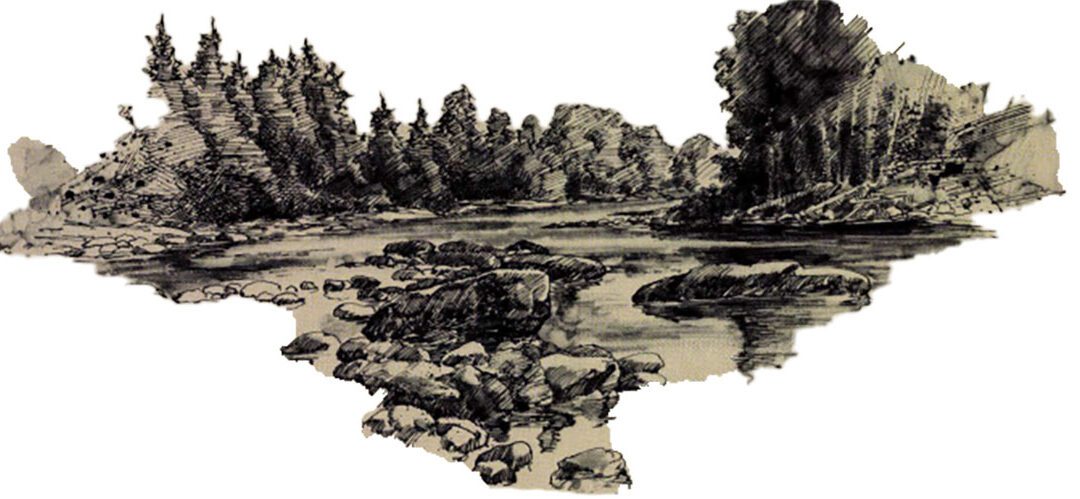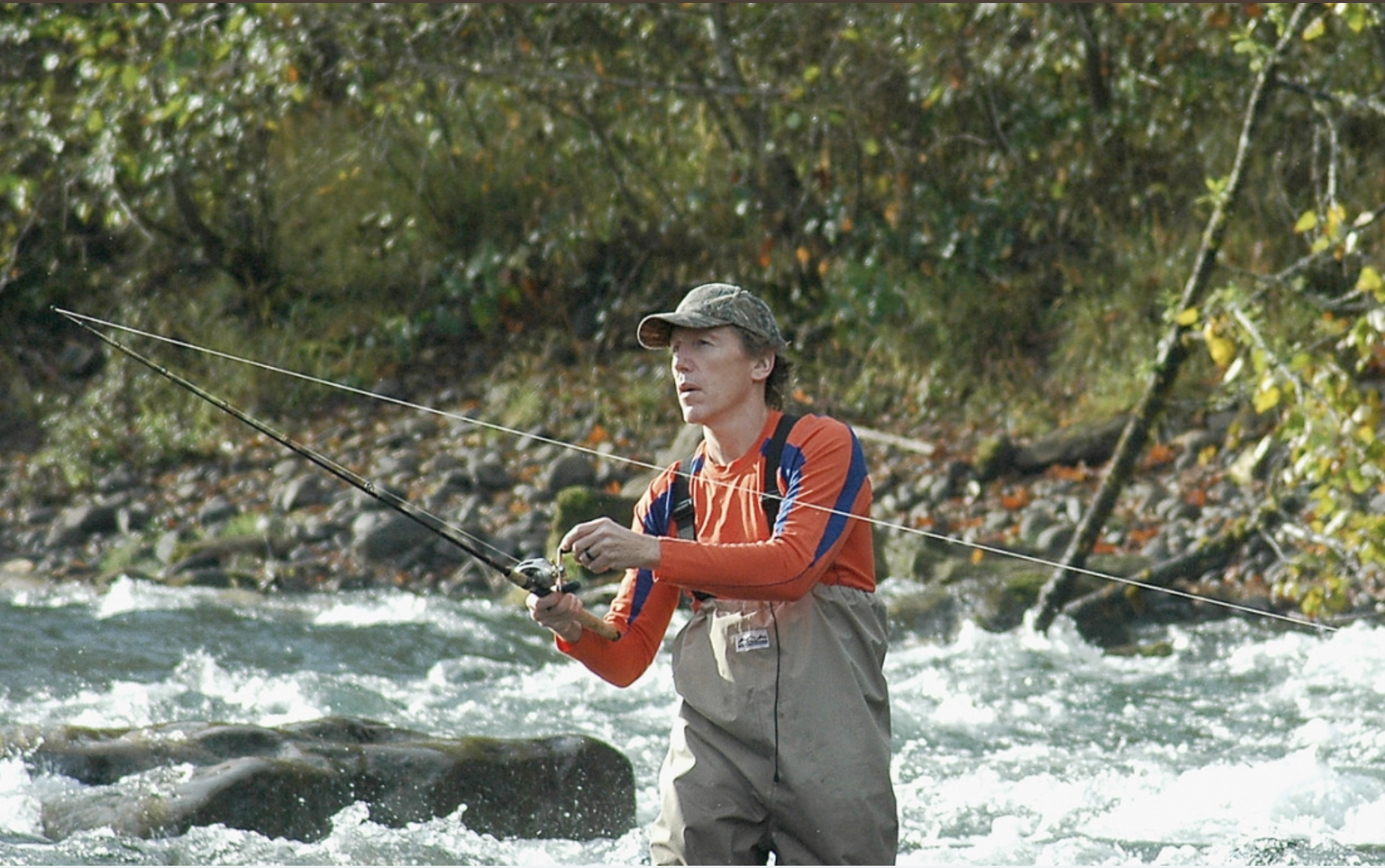“A gentleman!” repeated Quelch sarcastically. “Will you kindly inform me in what respect a person calling himself a gentleman differs from anyone else?”
Mr. Ephraim Tutt had just come out of the clubhouse and was standing, rod in hand, on the bank of the Santapedia beside his guest, Mr. Bonnie Doon, preparatory to the evening’s fishing, when a canoe appeared unexpectedly around the bend a third of a mile downstream.
“By Lazarus, if it ain’t Judge Quelch!” Donald McKay expelled a thin brown stream over the bank in the direction of the approaching canoe. “He’s got them same two hairy outlaws a-guidin’ him he had last season! The gol-blasted old troublemaker!”
Mr. Tutt would have tolerated no such disrespectful allusion to a regular member of the club in good standing from any guide except old Donald, and not from his save and excepting with regard to the aforesaid member of the judiciary. But the judge could hardly be said to be in good standing, except technically, and there was no gainsaying that he was a troublemaker — even a curse!
“Do you suppose he’s coming here!” asked Mr. Tutt hopelessly.
“He can’t be goin’ nowheres else,” commented Angus Ogilvy, the old lawyer’s bowman. “There’s nowheres else for him to go,’cept to Push-and-be-Damned, and there ain’t no fish there.”
“He’s a slick one,” growled old Donald.” He was up here first thing in May, the minute the season opened, and killed a 32-pounder. It gave him his third leg on the trophy-which was all he needed. So he saved the rest of his time in case anyone else should go him one better. He’s got five days left. He must have heard about Mr. Warburton land in that 35-pound fish on Saturday. That spoiled his chance for the Golden Salmon, so now he’s comin’ back again.”
“That’s right!” agreed Mr. Tutt. “The judge had the trophy hog-tied until Saturday. By jumping Jehoshaphat! I’d like to swang-dangle that old fellow!”
“He telephoned up last night to ask who was here,” volunteered Angus. “He knows the clubhouse is full. They told him Mr. Warburton was goin’ out day after tomorrow. He could have waited perfectly well until next week.”
“He’s following up that fresh run offish,” alleged Donald shrewdly. “They was at Two Brooks night before last. They’ll probably reach here by tomorrow.”
The canoe, bearing amidships a tall, saturnine man, was rapidly heading for the landing. Mr. Tutt scrambled down to meet it.”
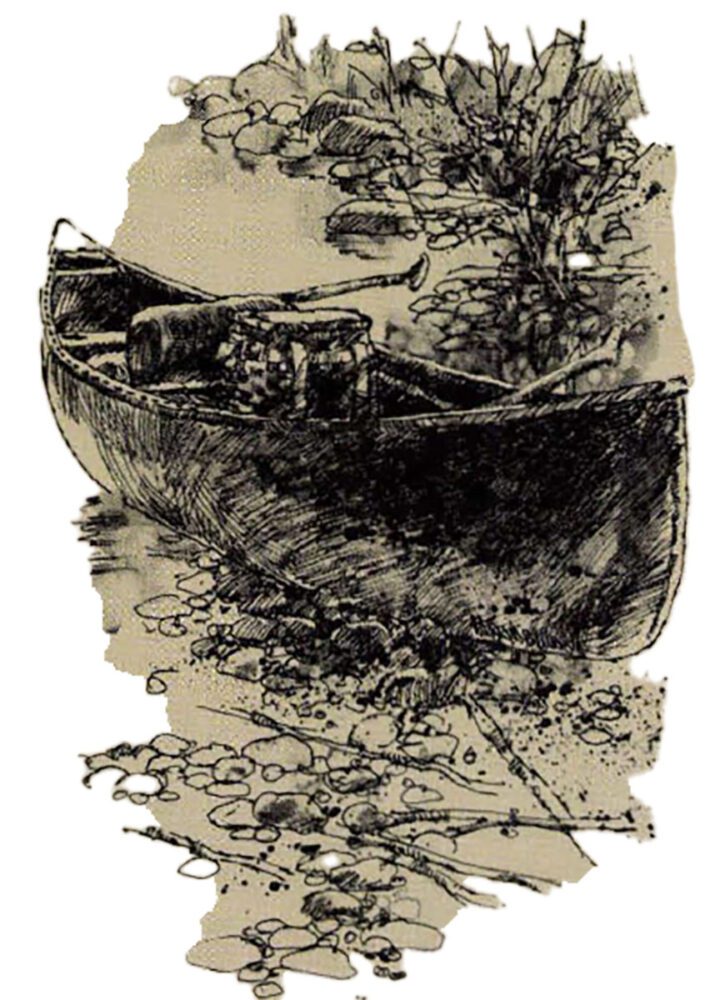 “Hello, Judge!” he cried out genially. “How are you? Hope you’ve had good luck!”
“Hello, Judge!” he cried out genially. “How are you? Hope you’ve had good luck!”
The occupant of the canoe vouchsafed no reply until it had grounded, and the bowman had spiked his paddle and leaped out. Then he arose stiffly and stepped ashore.
“I understand that you have a guest, ” he announced, in a hostile tone, without replying to the old lawyer’s greeting. “Of course, you are acquainted with the rule which provides that no guest shall occupy a room in the clubhouse if it is required by a member.”
“Of course, I know the rule, Judge,” replied Mr. Tutt. “But I had no idea that you wished to stay here until just now when I saw you coming up the river. If you had only telephoned —”
Judge Quelch turned to his guides.
“Take those duffel bags up to the veranda,” he ordered. “We shall be here the best part of a week.” Then addressing Mr. Tutt, he added: “The clubhouse is for the members who pay the dues, not for visitors who contribute nothing.”
“Mr. Warburton is going out on Tuesday,” answered Mr. Tutt, controlling his temper as well as he could. “If you would be willing to use one of the other camps farther up the river-Push-and-be-Dammed, for instance — until then —”
“I intend to fish here!” snapped Quelch, making his way up the bank. “Allow me to present my guest, Mr. Doon,” interposed Mr. Tutt. Bonnie stepped forward, but Quelch barely nodded to him.
“The camp at Burnt Hill is vacant, if you and your friend want to go there, or you might try Push-and-be-Dammed yourself,” he shot back, following his dunnage toward the clubhouse. “I have no intention of going anywhere else. ”
“Very well!” said Mr. Tutt shortly. “I will sleep with the guides until Tuesday. You can occupy my room. I hope you will enjoy it!”
The Golden Salmon is the trophy donated by the Rt. Rev. Lionel Charteris, Bishop of St. Albans, the beloved founder of the Wanic Club, which, as every fisherman knows, owns the best water on Santapedia, one of the great salmon rivers of New Brunswick, if not of the world. Here, on a grassy bluff below the forks overlooking what is known as the Home Pool, stands the low, wide-eaved bungalow where six of the finest gentlemen and grandest sports in the world, including Ephraim Tutt, have spent many of their happiest days — that is, they had spent them there until dear old Bishop Charteris died at the age of 89 and his small estate, including most unfortunately his share in the Wanic Club, had passed into the hands of a relative whom he had never seen, the Honorable Philo Utterbach Quelch.
The Golden Salmon, under the terms of its gift, was to become the property of whichever member should kill the largest fish in the Home Pool in three seasons. It stood in a case of crystal on the mantelpiece of the big fireplace in the sitting room, under the mounted carcass of Leviathan, the famous 50-pound salmon that the bishop had killed the last season he had spent there, after having hooked it the year before on a Parmachenee Belle and lost it, and after Mr. Tutt had rebooked it the following spring on a Silver Doctor, only to lose it in his tum — which is an entirely different yam, though true. Very different! For this particular narrative deals with the morals and manners traditional among sportsmen and gentlemen — that is, among real ones, but not to include, of course, the Honorable Philo — curse him — Utterbach Quelch.
Up to the interjection among them by law, so to speak, of the said Utterbach, the half dozen gentlemen now comprising the Wanic membership had fished the Santapedia together in the utmost harmony, eagerly looking forward each year to the moment when, the cares of office or of business laid aside, they could resume their sport upon the sunlit reaches of the river and cement their ancient friendships around the camp fire. But with the arrival of the Honorable Utterbach, everything was changed in the twinkling of an eye and a black cloud o’erspread the sunset of their lives. And now, by thunder, the fellow had two legs on the Golden Salmon!
To get the exact picture of the consequences of his eruption upon their peaceful clubhouse, one must comprehend that the Wanic is a rather swell affair. To receive an invitation to cast a fly there is the dream of every salmon fisherman, but such invitations are in inverse ratio to the eagerness with which they are sought after. The Prince of Wales had fished there — for a goose egg — and so has the Maharajah of Bhurtpore, the King of the Belgians, Will Rogers, Douglas Fairbanks, and a limited number of other potentates, panjandrums and the popular pals thereof; but they are the great exceptions.
An ordinary human being could no more pry himself into the social circle of the Wanic Club than he could into the family dining room at Buckingham Palace. Those old boys have known one another for more than half a century. They went to school together, some of them. Mr. Tutt is the only person ever distinguished with an honorary, or elective, membership. They are all the personification of gentleness and courtesy. It is their pleasure to give way to one another’s preferences and to oblige one another in all things, since there is fishing enough for all and to spare.
It had never occurred to them to pay any attention to their legal rights, if they had any, or even to the printed rules of the club, which, to all intents and purposes, had been forgotten ever since they had been drawn up twenty-five years before. Yet no sooner had the Honorable Philo Utterbach Quelch made his appearance than they were rudely awakened to the undeniable fact that a share in a salmon fishing club is property governed by the laws appertaining to the same, and that the rules and by-laws of such a corporation have a like force and effect.
Quelch was a cadaverous man with a coffin-shaped face, a querulous, rasping voice, and a legal manner, which, perhaps, was only natural considering his profession. Yet a legal manner is a poor manner among sportsmen; as it is too great a regard for the technical niceties of one’s rights. He had, moreover, an affliction of some sort which, when he spoke, made him stutter, squawk, strangle and explode so that he could be heard all over the camp; and at night he coughed, hawked and snored so that even the wild beasts, which had come down from the hills to nuzzle the garbage cans, fled back to their fastnesses in terror.
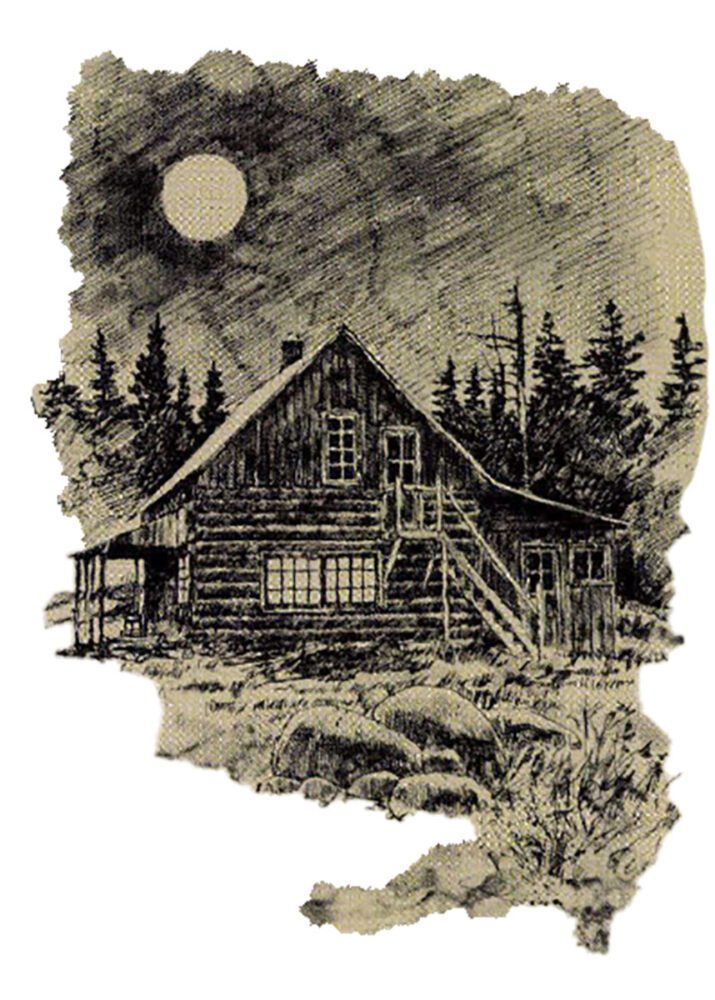 The strange thing about Quelch, like many other unpleasant persons, was that he could be perfectly agreeable when he chose to be so. He was highly cultivated, had read much, traveled widely and was learned in piscatorial as in other branches of the law. But there was something about him which made others dislike him more when he was trying to be affable than when he was being frankly nasty, which was most of the time. For in the woods it is better to be detestable than to be a bore. Quelch was both. The interminable strangulated orations with which he regaled his fellow member upon the veranda after meals, in which he retailed his various exploits in the world of sport, drove his fellow members nearly wild. The news that Quelch was coming was inevitably a signal for the hasty exodus of everyone else, and, in consequence, he usually had the clubhouse to himself.
The strange thing about Quelch, like many other unpleasant persons, was that he could be perfectly agreeable when he chose to be so. He was highly cultivated, had read much, traveled widely and was learned in piscatorial as in other branches of the law. But there was something about him which made others dislike him more when he was trying to be affable than when he was being frankly nasty, which was most of the time. For in the woods it is better to be detestable than to be a bore. Quelch was both. The interminable strangulated orations with which he regaled his fellow member upon the veranda after meals, in which he retailed his various exploits in the world of sport, drove his fellow members nearly wild. The news that Quelch was coming was inevitably a signal for the hasty exodus of everyone else, and, in consequence, he usually had the clubhouse to himself.
But this was different-the Golden Salmon was at stake! For a brief space, Mr. Tutt considered accepting the Honorable Quelch’s suggestion to move to Burnt Hill or Push-and-be-Damned, but Bonnie Doon had never been salmon fishing before, there was a fresh run on its way up the river, and — curse the fellow! — Old Man Tutt hated to be bullied by a lawyer half a dozen years younger than he was himself, even if he were a judge. So he went over and slept with the guides.
Having thus cooly ousted Mr. Tutt from his room in the clubhouse, Judge Quelch proceeded to make himself at home there, appropriating the seat at the head of the dining table, the best easy-chair next to the fireplace, and the only hammock upon the veranda, acting as if in so doing he was but exercising the prerogatives inherited from his distinguished half uncle. He also indulged in a practice anathema to all campers, preempting all the pegs and hooks on the outside of the clubhouse for his personal belongings, distributing his under and over garments everywhere, including a particularly dirty pair of ancient blue overalls, which he hung just outside the door of the living room, so that no one who either went in or out could fail to be reminded of his presence.
Being, therefore, in what was for him a genial frame of mind, he proceeded, after supper, to elucidate, for the edification of his fellow members, the law governing the ownership of wild game.
“There is,” he announced, “a great deal of confusion in the minds of most sportsmen as to the rights which they can acquire in what the law calls ferae naturae, or wild animals. There are, in fact, no property rights in wild animals, including fish, until the latter are reduced to actual manual possession by the hunter or fisherman, or are so wounded or confined as to be within his absolute control.”
“Do you mean to say that the salmon we kill in front of our clubhouse don’t belong to anyone until they’re actually landed?” asked Ives.
Judge Quelch flourished his cigar as if it were a gavel.
“That is precisely what I mean, sir. Ever since the Magna Charta of King John, it has been firmly established that in England the King owns all wild game not legally reduced to possession, and in America that the state in its sovereign capacity exercises the same ownership. That is the reason we all have to take out fishing licenses and pay a fee to the state. Our ownership of the banks of the river gives us only an exclusive right to fish in the waters beside us. While it is true that our right of fishery is enough to enable us to keep off trespassers and appropriate any fish they have killed in our own waters, it would not be sufficient to permit us to follow a poacher who had hooked a fish in front of the clubhouse and to take it away from him after he had killed it in waters other than our own.”
Donald McKay, who was whittling at the other end of the veranda, looked up.
“Are you sayin’, Judge, that it’s the law if a poacher comes on our waters and hooks a salmon, and it runs down stream and he kills it beyond our boundary, we can’t take the fish away from him?”
“Exactly. We have only an exclusive privilege of taking the salmon while it is in our water. The moment the fish passes beyond our boundaries we lose that right of fishery and the fish becomes subject to the poacher’s superior right of absolute manual possession, although we could, of course, bring an action against him for trespass.”
“By Lazarus! That’s news to me!” declared Donald. “And it’ll be news to a lot of other fellers.” Judge Quelch grinned in what he intended to be a benign fashion, but which merely approximated the smile of a hyena.
“Laymen — including guides like yourself — are not supposed to be familiar with the technical rules of law in such matters. There is a fundamental difference between owning a fish outright and having merely the exclusive privilege of trying to catch it on one’s own waters.”
“They had a funny case like that down river about a deer,” volunteered Donald. “One man wounded it pretty bad and, while it was running’, another feller shot it through the heart an’ killed it. They had a kind of moot court in the camp and gave it to the feller that wounded it first.”
“Entirely wrong!” asserted Quelch authoritatively. “The law is absolutely settled that under such circumstances the animal belonged to the one who killed it reduced it to actual possession. I can, in fact, cite you an exact precedent — Pierson versus Post, 3 Caines Cases 175, if I remember correctly.”
“I’m sure you always remember correctly,” said Mr. Tutt.
“It was a case about foxes. there had been a hunt, and the hounds were about to make a kill, when a farmer, seeing that the fox was cornered, shot and made off with it. The court held that he was perfectly within his right. I can recall the exact words of the decision: ‘An action will not lie against a man for killing and taking a wild animal pursued by and in view of the person who originally found, started, chased it, and was on the point of seizing it.’ There are innumerable cases on the subject. They cover bear, deer, seals, birds —”
“Are there any about salmon?” asked Mr. Tutt quietly.
“Er — perhaps not specifically about salmon,” conceded Judge Quelch, “but by analogy —”
“Do you contend that if two men are fishing a stream and one hooks a salmon, the other has a legal right to gaff and take it, on the ground that he was the one to reduce it to actual possession?”
“I most certainly do?” answered the judge. “Most of us know to our cost that our chances of ultimate possession of a salmon on the end of a hundred yards of line are exceedingly precarious, to say the least. The fish belongs to the one who gets him.
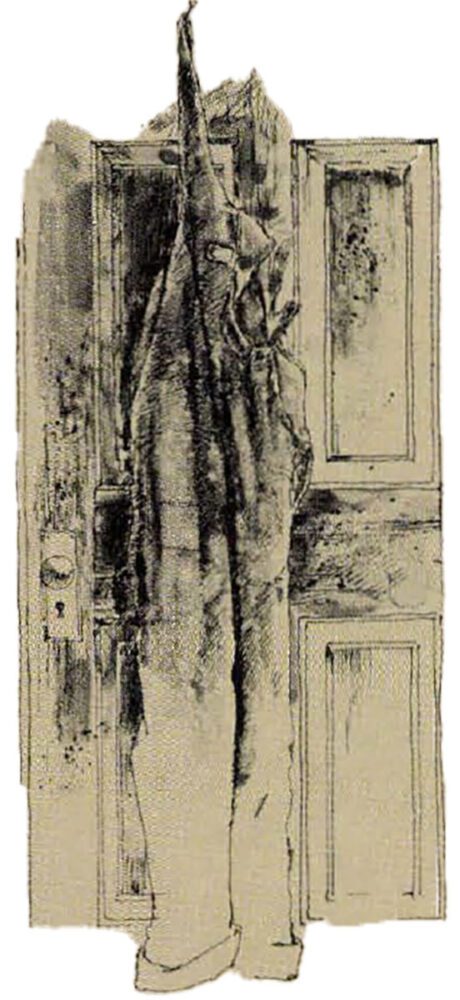 “Humph!” snorted the president of the British Columbian Railways. “What would you think of a man who gaffed another man’s fish?”
“Humph!” snorted the president of the British Columbian Railways. “What would you think of a man who gaffed another man’s fish?”
“As a judge,” replied the Honorable Philo, “my task, should such a case come before me, would be solely to interpret and apply the law according to my best rights.”
“Don’t you agree that there’s a great deal of difference between the chances of reducing to possession a deer that has been wounded by a bullet and a salmon which has been solidly hooked, and is attached to a No. 1 leader on the end of a 24-pound test line?” asked Mr. Tutt.
“I do not!” snapped the judge. “The line or leader may break. ”
“In any case,” continued the old lawyer, “I understand your position to be that hooking a salmon gives a fisherman no right to the fish that is superior to anyone else’s. So that if another fisherman hooked the same fish foul, it would belong to whichever could manage to land him?”
“That is not only my position but it is the law!” affirmed the Honorable Philo. “Don’t you think that among sportsmen such a performance would justly be regarded as contemptible?” demanded Warburton.
The Honorable Philo Utterbach Quelch turned a pale orb upon his questioner.
“It is time that sportsmen, so-called, realized that they are governed by the rules of law like everybody else,” he remarked.
“So you’d take another man’s fish if you hooked him foul?” inquired Mr. Tutt.
“That would depend — on circumstances. I only say that under the law I would have the right to do so, if I chose,” replied Quelch.
“But do you think any man calling himself a gentleman would do a thing like that?” persisted Mr. Tutt.
“A gentleman!” repeated Quelch sarcastically. “Will you kindly inform me in what respect a person calling himself a gentleman differs from anyone else?”
“The word has had a pretty well-defined meaning for several hundred years,” mused Mr. Tutt. “You may have heard me phrase ‘on my honor as a gentleman,’ perhaps?”
“I have heard it, and I fail to see how the honor of a gentleman differs from me honor of any other citizen,” sneered Quelch. “Honor is honor, and law is law. Every nation and every religion in the world has a different standard of morals. The only basic test of the rightfulness or wrongfulness of an action is whether that action is legal or illegal.”
The president of the Royal Bank of Canada leaned forward.
“The by-laws of practically every club provide that a member may be expelled for conduct unbecoming a gentleman. Why is that, if it means nothing?” he remarked.
“That’s all it does mean!” snorted Quelch. “Naming! Such provisions have no validity in the courts. The member of a club cannot be expelled for anything he had a legal right to do. I’m sure I’ve no idea of what is meant by a gentleman.”
“I can well believe it,” murmured Mr. Tutt.
“Hear! Hear!” came from me other end of the veranda.
Quelch’s eye swept the circle of disgusted sportsmen.
“Well, come on; tell me! What is a gentleman?” he demanded.
“I don’t wonder you ask!” commented Mr. Arbuthnot.
“Trying to define a gentleman has been a favorite parlor game so long as I can remember,” said Quelch. “It can’t be done, for the simple reason that the word is entirely vague, a meaningless term. It belongs in the same category as questions like ‘What is art?’ and ‘What is beauty?’ If you ask me —”
“We do ask you!” Ives shot at him.
“As a man of considerable experience of the world, who has listened to countless litigated disputes, I say that, in the final analysis, the only satisfactory test of a gentleman is whether or not he is willing to infringe the legal rights of others. Any other gauge of human conduct is hopelessly confused. If one applies the purely legal test, everything becomes clear and definite. For example — and I cite this as an excellent and most apropos illustration — when I arrived here, this evening, I found mat Mr. Tutt had invited a guest to fish with him-a right derived by him solely from our by-laws; but those very same by-laws provide that no guest can occupy a room in the clubhouse if it is required by a member. Now, I have two legs on the trophy presented to the club by my uncle, Bishop Charteris, and I am entitled to five more days’ fishing at me Forks. To attempt to exclude me from the club and to prevent me from securing me trophy, if I can, would certainly not be a gentlemanly course of procedure. But what is the test? The law as expressed in our rules. Should I, out of some mistaken idea of courtesy, waive my rights in this instance, I should not only be unjust to myself but open the door to every sort of abuse. The clubhouse might easily become filled with guests who would prevent the regular members from getting any fish at all. We must uphold the rules. The true gentleman is he who is willing to suffer criticism for the ultimate good of all.”
Mr. Tutt produced and lit a stogy.
“What you say — coming, as it does, from the lips of Gamaliel, so to speak — interests me extremely,” he remarked. “But I can easily see that questions might arise even under our by-laws which would be very hard to settle by purely legal reasoning and which might have to be determined by an appeal to some less rigid test!”
“Indeed!” remarked the Honorable Quelch. “What, for example!”
“Well,” drawled Mr. Tutt, “my very dear old friend, your half-uncle, Bishop Charteris, bequeathed the trophy to whomsoever should kill the biggest salmon in the Home Pool during three seasons. Now, suppose I hooked a fish in Push-and-be-Damned, say, and it carried me down to the Home Pool and I killed it there — would I come within the requirements?”
“Certainly not!” ejaculated Quelch. “To qualify for the trophy, the fish must be hooked in the Home Pool by the member having the right to fish there at the time. ”
“And where do you get that?” inquired Ives.
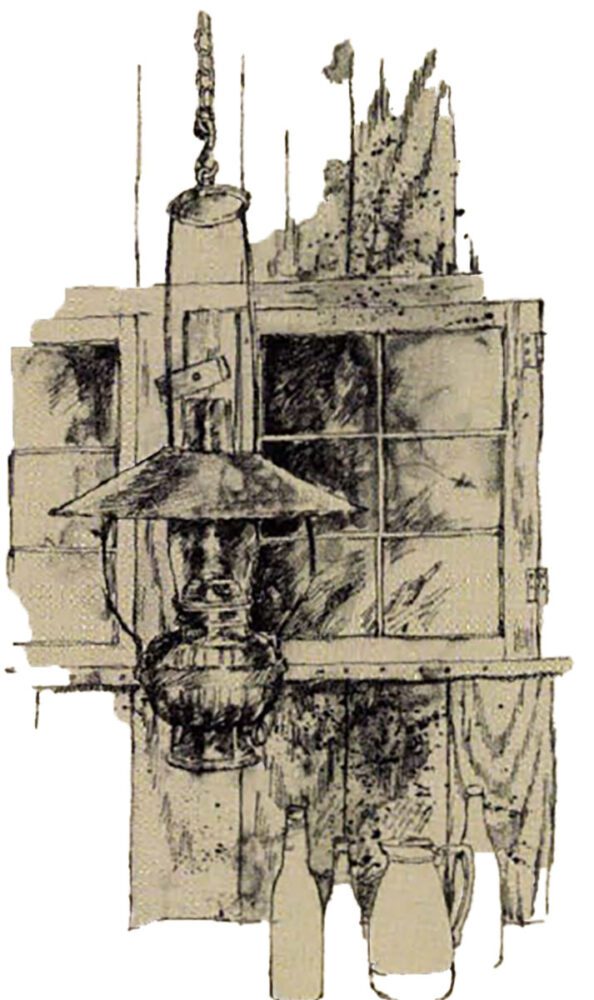 “That is my judical interpretation of the paragraph of my uncle’s will,” answered Quelch. “And I am ready to gamble my professional reputation that it would be sustained by any of the higher courts of New Brunswick. ”
“That is my judical interpretation of the paragraph of my uncle’s will,” answered Quelch. “And I am ready to gamble my professional reputation that it would be sustained by any of the higher courts of New Brunswick. ”
“Suppose I hooked a fish in Push-and-be-Damned and it carried me down to the Home Pool, what would you do if you were fishing there?”
“If! had drawn the Home Pool under the provisions of the by-laws and were fishing it, I should require you to move along.”
“Suppose I couldn’t? Suppose the salmon wanted to stay there?”
“You’d have no right to remain and spoil my fishing,” declared Quelch. “Whoever draws the Home Pool has the right to the undisturbed possession of it. All others are trespassers. In fact,” he added, “a proper construction of the by-laws would give me the right to hook and take the fish — in which case it would properly be regarded as having been killed in the Home Pool.”
“I merely wanted to know,” explained Mr. Tutt. “After all, applying technical legal rules rather simplifies things, as you say … By jumping Jehoshaphat, it’s half past six!”
“Time we were pushing off!” interrupted Norton, adding something under his breath inaudible to the Honorable Philo.
“Did you hear what the judge said, Donald?” asked Mr. Tutt with his gentlest smile as he climbed into the canoe.
“I heard him!” answered Donald, picking up his paddle. “And also his reference to guides in general! Wouldn’t it be the gol-blastedest thing if the old scalawag managed to cinch the Golden Salmon?”
“He won’t if I can help it!” asserted Mr. Tutt.
The pools at the Wanic Club are drawn by lot each day and, as luck would have it, during the next four days the Honorable Philo, although a redoubtable fisherman, did not improve his position with respect to the Golden Salmon. He still had two legs on it, but no more. Mr. Warburton’s 35-pound fish remained the largest taken from the Home Pool that year. Then, on the last day of the five upon which he was still entitled to fish, the judge proceeded to draw the Home Pool for both morning and evening. It was a heavy blow to the other members, for the fresh run of fish that had been on their way up the river had just arrived and that particular pool was boiling. Everyone agreed that it would be just Quelch’s luck to kill a forty-pound fish at the last minute and carry off the trophy.
The Wanic Club stands at the Forks of the Santapedia. There are six pools in all: The Home Pool just in front of the clubhouse — where a sand pit lying in midriver divides the current, part of which having flowed past the spit turns upstream in a back eddy, rejoining the rapids again above the bar-the Cocktail, the Corkscrew, and the Wildcat on the half mile stretch below. Above the forks are two others — Push-and-be-Damned, which, being a mile away, has a camp of its own; and lower down, a couple hundred yards above the Wanic clubhouse, one of the very best pools of all — Donald’s Leap —where, in his younger days, Donald McKay had jumped a full twelve feet from the bank to a rock in midstream to gaff a salmon entangled among the driftwood.
The Honorable Philo’s last day dawned auspiciously, one of those perfect days for fishing that come but once or twice in a season. The water was neither too high nor too low, the sun was bright and hot, there was enough of a breeze to ruffle the surface without making it difficult to cast. Mr. Tutt had killed two salmon weighing more than 30 pounds each in the Home Pool the evening before, and the wardens had reported that they had seen several big fish, estimated at upwards of forty pounds, moving upstream toward the Forks. And, of course, it had to be the Honorable Philo who drew the Home Pool that day, and, of course, before breakfast he had already killed a 33-pounder on a Jock Scot. He came in arrogantly, consuming a trencher of oatmeal, two large platters of corn cakes and maple sirup, and several cups of coffee, after which he proceeded to expatiate magniloquently upon his chances of winning the trophy. Even if he didn’t kill the biggest fish that year, he pointed out, his chances were still three to one as against anyone else. Clearly, in his opinion, the Golden Salmon was already as good as his.
The limit to the number of fish a member may kill in one day is six, so that Quelch could take but four more and, if he were to capture the trophy, one of these must exceed the weight of Warburton’s 35-pounder taken the previous week. Now Quelch belonged to that variety of fisherman whose ambition is to kill as many fish as possible. He was inevitably on his pool by five in the morning and kept casting, casting, casting, until darkness rendered it no longer possible to do so. He had even been known to go on fishing when he could no longer see his fly. But if one is not trying to catch more than his competitors, but merely a bigger fish, the greater number he catches without achieving his object the worse it is for him since it reduces his final chances.
“By Lazarus!” exclaimed old Donald as Mr. Tutt emerged from the clubhouse after lunch. “I’ve just seen something I wouldn’t have believed possible, if it weren’t fer Angus to corroborate me. I take my oath I saw the judge hook and playa salmon out there, and when he most brought him in and saw he was only twenty pounds or so, he had one of his hairy sons-of-guns cut the leader and let him go! Is that within the rules?”
“I suppose so,” answered the old lawyer wryly. “A member may kill only six fish, and a fish that is released isn’t technically killed even if it dies afterwards.”
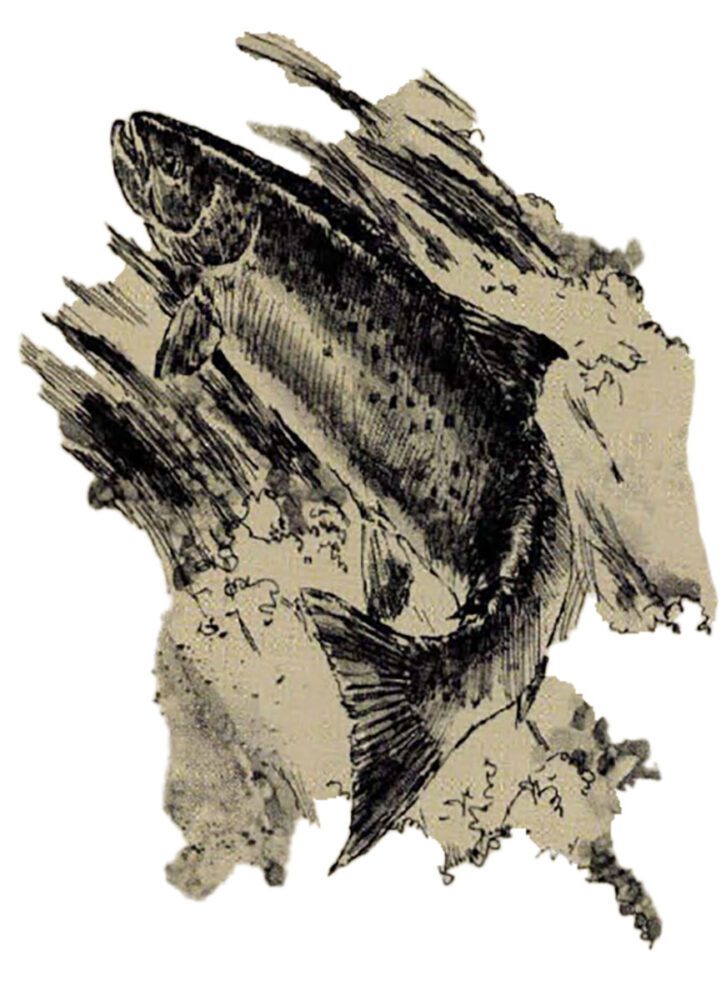 Donald spat contemptuously.
Donald spat contemptuously.
“That’s on a par with what he did up to the Headwater Pool last year. You know, all the fish that pass by here go up there to spawn. They’re so hungry they’ll pretty near jump at the bare hook, let alone a fly. A member is only allowed to stay there two days and kill a dozen fish.”
“What did Quelch do?”
“I’ll tell ye what he did, and I’ve made affidavit of it too. He and them two dogfaced boys from Boiestown went up there last September and hooked and landed 70 fish. They kep’ 12 of ’em and threw back 58. You know how much chance for life a salmon has, once he’s been hooked and landed. But the judge claimed he was within the rules!”
“Donald,” he said, “something must be done about this map Quelch.”
But luck was with the Judge. All that afternoon, in spite of the protests of the other members, he turned the Home Pool into a piscatorial slaughterhouse, hooking salmon, playing them nearly dead and, because they were not large enough, letting them go. By five o’clock he had hooked nine and kept only four; thus, as he contended still maintaining the legal right to kill two more. He worked like an automaton, standing in his waders on the sand spit and whipping every inch of water from the point where the Santapedia shoots through a flume of rocks in an almost solid column of brown amber into the rapids, across the deep, oily stretches between the bar and the high banks in front of the clubhouse, to where the river broadens into dimpling shallows before part of it swirls onward into the Cocktail and the rest swings into a back eddy that circles around the bar and rejoins the mainstream again. Crouched beside his canoe were the two hairy apes from Boiestown, ready to shove off and follow any fish that might seek to escape down river. And still he cast, quartering the pool with every variety of fly in his book, determined before night to land a salmon bigger than Warburton’s 35-pounder.
Concededly, his chances were good. There were 40-pound fish in the pool and at any moment one of them might take his fly. Ives, Norton and Arbuthnot, who had drawn the Cocktail, the Corkscrew and the Wild Cat, respectively, had given up and were smoking their pipes on the veranda. No doubt about it, the fish were all in the Home Pool. Mr. Tutt and Bonnie Doon, with Donald and Angus, had gone up to Donald’s Leap and were fishing it from the banks.
A portentous silence hung over the Forks. No sound disturbed the tranquility of the late afternoon, save the murmur of the river, the occasional splash of a kingfisher or the sound of expectoration from one or the other of Quelch’s hairy guides. The shadows began to lengthen and the golden light to creep higher and higher toward the tops of the pines. Dusk was falling fast — that indeterminate translucent veil which, like a mist, screens and magnifies, transforming even the commonest of objects. That, perhaps, is why the late fishing is best, since the gathering darkness helps to deceive the salmon when he sees what he takes to be a fly. Such was the hour, and big with Fate. Now, if ever, Quelch might expect to raise and kill his winning fish.
Suddenly, from far above the Forks, came a distant shouting. Something exciting was going on up there, and it could mean but one thing. Mr. Tutt — or possibly Mr. Doon — had hooked a mighty fish. Instantly the river became alive. The hullabaloo increased, growing momentarily louder, so that the members left the veranda and gathered on the bank to see what was going to happen. The guides and cook came running from the camp and cookhouse.
First, Donald appeared, gaff in hand, jumping from rock to rock, closely followed by Angus and Bonnie Doon. Then, upstream, struggling with all his might, Old Man Tutt came into view, his rod bent in half circle, butt against belly, his reel screeching, his line taut as a telegraph wire attached to race horse. Obviously, he had hooked a salmon in Donald’s Leap and, do what he would, it was pulling him down the river.
It was a precarious situation, for above the Forks the Santapedia goes sweeping around jagged boulders, over sharp ledges and past tangled piles of logs and driftwood which offer every opportunity for the line to catch and the fish to break away. But although Mr. Tutt had already been dragged a hundred yards, he had, nevertheless, managed to hang fast to his fish, which, accompanied by a chorus of yells from Donald, Angus and Bonnie Doon, was making its away straight for the falls above the Home Pool. Any such view halloo is inevitably the signal for every member to leave what he is doing, no matter where or what, and to come hurrying to watch the kill. But Quelch did not budge. Stolidly he went on with his casting, hardly vouchsafing so much as a look upstream.
They were all there now. Warburton, who had come back to see the finish, Ives, Norton, Arbuthnot, the two wardens, the cook, his helpers, and half a dozen guides were strung along the bluff, for they knew, from the way that Mr. Tutt, Donald and Angus acted, that this was indeed no ordinary fish.
“By Godfrey!” muttered Ives. “That salmon is sure coming down into the Home Pool, and if it does — so help me Quelch! — there’s going to be a cat fight before we get through. ”
“Thar he goes!” shouted Angus hysterically, as a black streak slithered over the falls. “He’s a whale! Forty-five pounds if he’s an ounce!
“Fifty, by Lazarus!” yelled old Donald. “I never seen one as big — not even the bishop’s!”
“What did you raise him with?” called out the methodical Norton.” A Griswold Gray. He only riz once — and took it solid!”
“Did you see his tail?” “Looked like the stem of an ocean liner!”
Mr. Tutt was staggering in midstream, reeling bravely as opportunity offered and struggling to gain the bank above the falls, whence he might hope to exercise some control over the fish at the end of his 90 yards of line. But the current is powerful here, hurling itself like a mill race against the high dune in front of the clubhouse and whirling deep, black and foam-flecked along the edge of the pool, so that even a small fish has a good chance of escape. Naturally, the salmon made for this point of least resistance, pulling out more and more line as Mr. Tutt scramble dover the rocks and came running after it along the shore.
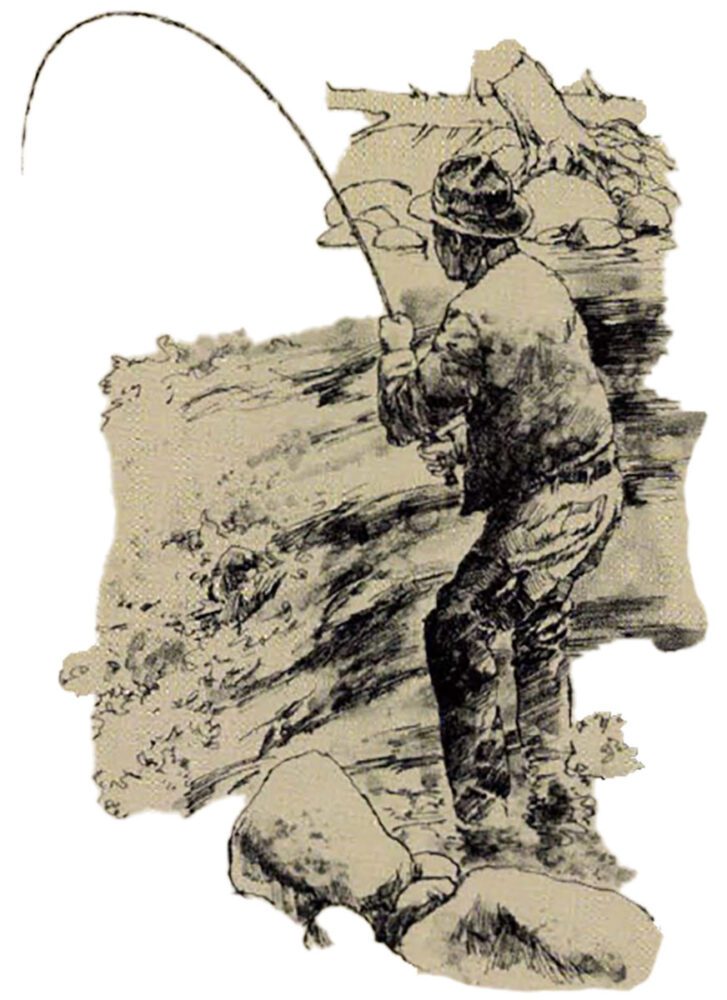 “Get a canoe!” ordered Norton, and Donald and Angus plunged down the shelving grave land, clambering in, pushed off into the center of the pool, ready to follow should the salmon make another break for lower down.
“Get a canoe!” ordered Norton, and Donald and Angus plunged down the shelving grave land, clambering in, pushed off into the center of the pool, ready to follow should the salmon make another break for lower down.
The fish was now hanging directly opposite, about a hundred feet from the sand bar from which Quelch was casting. Looking across at Mr. Tutt, he called harshly:
“Get off my water!”
“I can’t!” answered the old lawyer. “I’m fast to a salmon.”
“Makes no difference! I’ve the exclusive right to fish this pool. You’re a trespasser! Order your guides ashore!” Just then Mr. Tutt’s line slackened for a moment and a black back rose to sight, only instantly to disappear again. Mr. Tutt reeled frantically.
“I tell you to get off my water!” bellowed Quelch.
“I’m going to land my fish first!”
“You have no right to kill a salmon in this pool!”
“I’m going to, all the same!” replied Mr. Tutt … “Hey, there Angus! Push out into the shallows!”
“If you kill a salmon here, I shall claim ‘him as mine!” warned Quelch.
“Nonsense!” declared Arbuthnot. “You can’t prevent another member from following a fish into your water.”
“The courts will decide that!” retorted Quelch.
The black object rose once more to the surface some 20-odd feet lower down the pool. At the same instant. Quelch raised his rod. It was a long cast — 40 yards at least — but the judge was an expert and could hit a leaf unerringly at that distance. Ping! His line became taut, his rod whipped into a half circle, and with a leer of elation he began to reel in. Incredible as it seemed, he had succeeded in hooking Mr. Tutt’s fish foul at the first cast. An outcry of protest came from the spectators upon the bank.
“That’s the dirtiest trick I’ve ever seen done on a river!” asserted Ives.
“I’m fully within my rights!” retorted Quelch. “No matter who lands this fish, itis mine — and counts for the trophy!”
Both old men were now fast to the same salmon — the one by the mouth, the other by the tail — and favored by the swiftness of the current, it was making headway against both of them.
“I hooked this fish!” panted Mr. Tutt.
“That gives you no legal claim. You haven’t reduced him to possession! A salmon is ferae naturae —”
“Ferae naturae be damned!” bawled the old lawyer, as, at that precise instant, his line parted and his rod straightened so that he nearly fell over backward. A grin of triumph gathered upon the face of the Honorable Utterbach at the realization that the gods had thus unexpectedly intervened in his behalf. All he had to do now was to land his fish, and the trophy would be his; for he felt convinced that he was fast to the biggest salmon of the season, if not of all time. But landing a salmon foul is no easy task, as the Judge well knew. If often means an endurance contest — requiring hours of hard work to tire him out.
So the Honorable Philo sat down carefully on his sand spit, propped his heels against a rock, inserted the butt of his rod in the socket of his leather belt, and dug himself in with his line leading directly into the center of the pool where the fish was now apparently sulking. Ives, Warburton, Norton and Arbuthnot had gathered about Mr. Tutt in earnest consultation. Presently Arbuthnot came down to the edge of the landing.
“We have held a meeting of the club members, Judge Quelch,” he announced acidly, “and you have been expelled for conduct that was unbecoming of a gentleman. ”
“Rot!” returned the Honorable Philo. “You can’t expel me! Besides, your meeting was not properly called. The law will respect my rights, even if you do not!” He was about to add something more, but his reel began to sing as the salmon made for the end of the pool, so that he scrambled hastily to his feet and followed along the sand spit. Quelch was a good fisherman and knew that even if he could not hold his fish in the swift water, he might be able to steer it into the back eddy; so he let it run the length of the pool and then swung it across the current. It was a daring and clever maneuver — and it succeeded. Back came the salmon upstream into the dead water on the other side of the bar and, with the strain on the line thus relieved, Quelch reeled in until he had shortened his line by fifty or more feet. Making a complete circle around the sand spit, the fish reentered the Home Pool and, taking advantage of the rapids below the falls and the powerful current in front of the clubhouse, made for the lower river, running out the line again until Quelch’s reel was all but stripped.
Once more, however, the judge turned him just in the nick of time and nursed his fish into the backwater again, around the head of the spit and into the Home Pool. Already an hour had gone by, it was almost dark, but the salmon seemed as fresh as ever. With every passing minute, the Judge’s time was running out and, unless he could land his fish, he would have lost his chance, for that year at least, of capturing the Golden Salmon. The lamps had been lighted in the clubhouse, but, although supper was ready, Tobias, the cook, did not announce it, preferring to stand with the others and watch the finish fight going on below.
“If he don’t land him next trip, it’s all over!” declared Norton, as the judge once again steered his quarry into the backwater. “It’ll be pitch black inside of 10 minutes.”
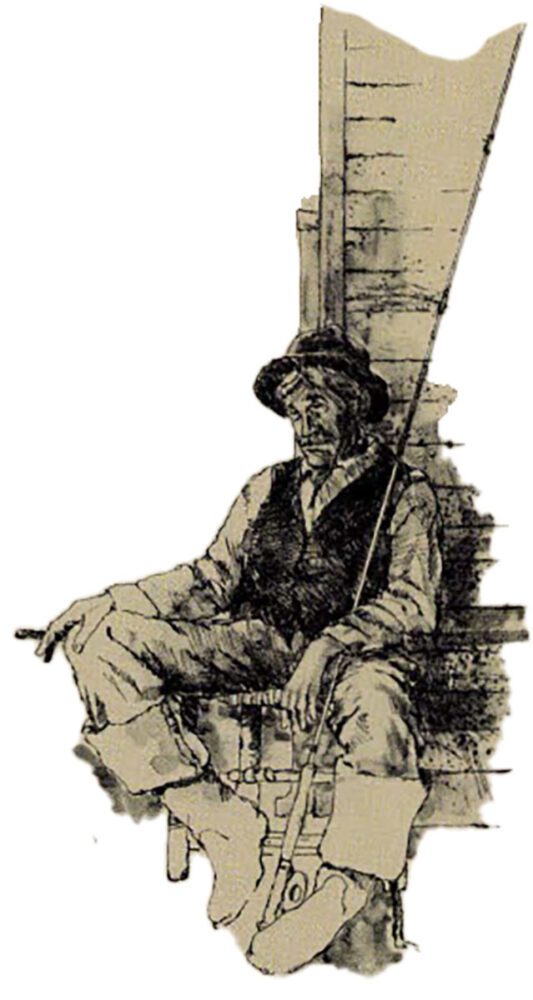 This time, however, it became obvious that the judge meant to bring the struggle to an end, for when the salmon again followed the current of the back eddy into the main pool, he began to reel in with all his strength. Slowly the line shortened.
This time, however, it became obvious that the judge meant to bring the struggle to an end, for when the salmon again followed the current of the back eddy into the main pool, he began to reel in with all his strength. Slowly the line shortened.
“Dammit! I believe he’s got him!” swore Ives.
One of the hirsute guides had climbed into the canoe and swung it across the end of the spit in order to intercept the salmon, should it make a final rush; the other waded into the water with his gaff held in readiness to strike.
Inch by inch, the salmon came in, not, as usual, turning over so as to exhibit its belly, but with its back flush with the surface.
Quelch walked to the river’s edge.
“Now!” he yelled. “Let him have it!”
They all watched breathlessly as, amid a silence like the vacuum between two worlds, the guide reached forward with this gaff and struck. Generally, under such circumstances, the salmon puts up a frantic battle for life, floundering about and scattering the water in every direction. Many a fish has been lost owing to the desperate character of its last minute’s struggle. But in this instance nothing of the sort occurred. The gaff encountered no resistance and, with but slight effort, Quelch’s guide lifted his quarry from the water. Quickly he dropped it — but not before a chorus of jeers and catcalls had risen from the opposite bank. Shamefacedly he waded backward toward the spit, dragging behind him — a water-logged pair of blue overalls! Quelch stared at them stupidly. Gingerly he picked them up by one leg. They were his own!
Slowly, while the crowd upon the bank hugged themselves with delight, the Honorable Utterbach dismounted his rod and got into his canoe.
Arbuthnot met him at the landing.
“I call to your attention,” said he severely, “that since you arrived in the afternoon, your five days are already up and that you are no longer entitled to remain here. Your room has accordingly been turned over to Mr. Tutt.”
“You are correct according to the bylaws,” conceded the judge. “I will pack up my things, and after supper —”
“You are not entitled to supper,” interrupted Arbuthnot coldly. “You got here at 5 o’clock and you have already exceeded your time by two hours. Member or no member, you will move on at once.” The judge turned to his guides.
“Get ready to go to Push-and-be Damned,” he said shortly. “We’ll have supper when we reach camp.”
“And be damned!” echoed someone.
Ten minutes later he was gone.
“How did you ever come to think of it, Mr. Tutt?” asked Norton as they all sat around the camp fire that evening.
“Well,” admitted the old lawyer as he lit a fresh stogy and tossed the rest of those in his case to the guides, “the fact is I did the very same thing last year at Burnt Hill — with a pair of overalls too. A strong — current is very deceptive and will make as mall fish act like a big one at any time. I saw Warburton go ashore to land a half-pound chub in front of the clubhouse only last Monday. I figured that if! waited until it was nearly dark, I could make most anything act like a salmon.”
“I’ll say you did!” commented Ives. “You had me fooled to the last second.”
“And then, you see,” continued Mr. Tutt, “I already had Quelch’s assurance as to what he would do under the circumstances. He ran true to form and lived up to his principles — such as they are. I’ve no doubt he considers himself more sinned against than sinning.”
“I caught a wash boiler once down to Henshaw’s, and I saw a feller play an old shoe for half an hour at Two Brooks,” said Old Donald. “I’ve seen the same sort of thing happen half a dozen times!”
They all smoked in silence for a while. It was broken by Angus.
“And they was his own pants at that!” he chuckled.
The Honorable Utterbach sat disconsolately, after a supper of cold beans, upon the rough porch of Push-and-be-Damned under a leering moon. The two hairy apes from Boiestown lolled at a distance against the veranda, spitting alternately in a disdainful manner at an adjacent stump. Overalls! The Judge’s moose lip quivered and something suspiciously like water glistened on his lower lids. Caesar, Alexander, Napoleon — even Bismarck-may have wept, but there is no record of it. And, after all, they were iron men.
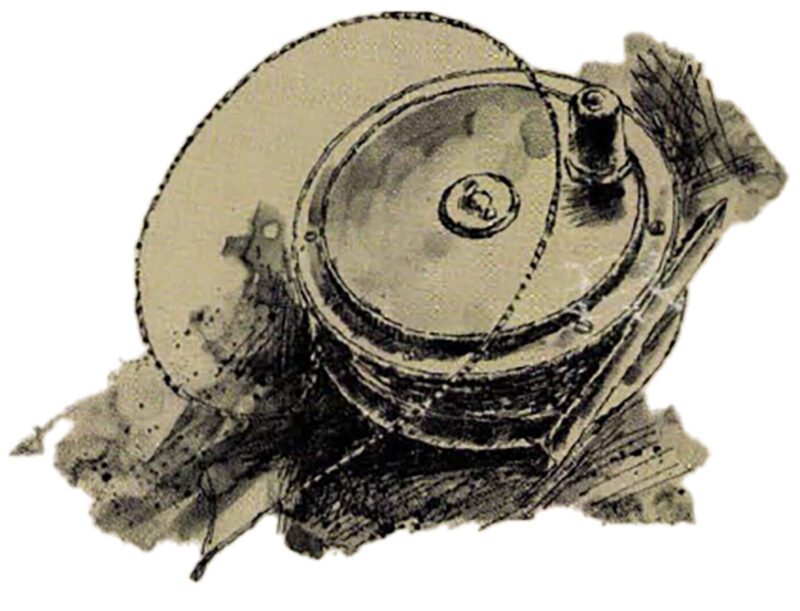 The Honorable Utterbach felt very much alone. He was not a man of iron. What could be the trouble? He was a judge, wasn’t he? And the law was the law? He had only acted according to his rights. Yes, he had been treated outrageously. Outrageously! And he had lost the Golden Salmon — for that year anyway! Pulling outa huge silk handkerchief, he blew his nose with a blast that might have echoed to the Forks. Then, with his lips still quivering, he looked up at the moon.
The Honorable Utterbach felt very much alone. He was not a man of iron. What could be the trouble? He was a judge, wasn’t he? And the law was the law? He had only acted according to his rights. Yes, he had been treated outrageously. Outrageously! And he had lost the Golden Salmon — for that year anyway! Pulling outa huge silk handkerchief, he blew his nose with a blast that might have echoed to the Forks. Then, with his lips still quivering, he looked up at the moon.
“Mr. Tutt is no gentleman!” he declared.
Editor’s Note: this story was first copyrighted by Charles Scribner’s Sons in 1961 — later appearing in the 1985 July/August issue of Sporting Classics.
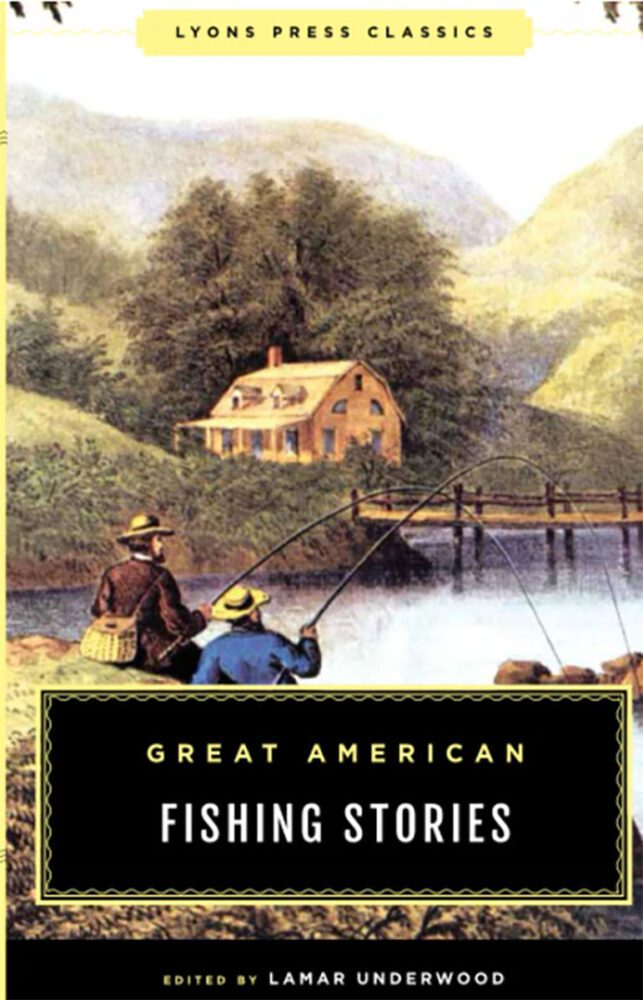 Classic writing remains “classic” only insofar as people want to read it. Angling historians may study the evolution of tackle or tying techniques, or perhaps the methods of fishing used hundreds of years ago, but the wonderful stories about fishing are read and reread only because they give pleasure today; because they give us insights into why we fish and the nature of our passion; and because they are well written. This book offers sixteen of the best classic fishing stories that have stood the inescapable test of time. Buy Now
Classic writing remains “classic” only insofar as people want to read it. Angling historians may study the evolution of tackle or tying techniques, or perhaps the methods of fishing used hundreds of years ago, but the wonderful stories about fishing are read and reread only because they give pleasure today; because they give us insights into why we fish and the nature of our passion; and because they are well written. This book offers sixteen of the best classic fishing stories that have stood the inescapable test of time. Buy Now
